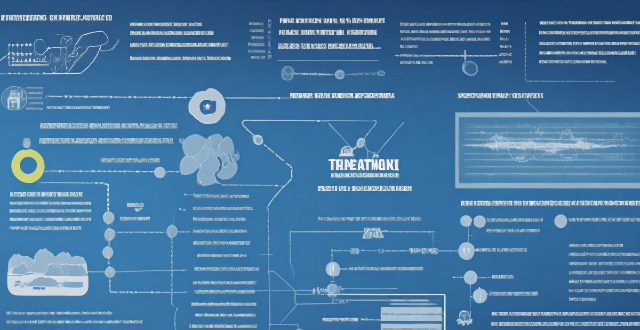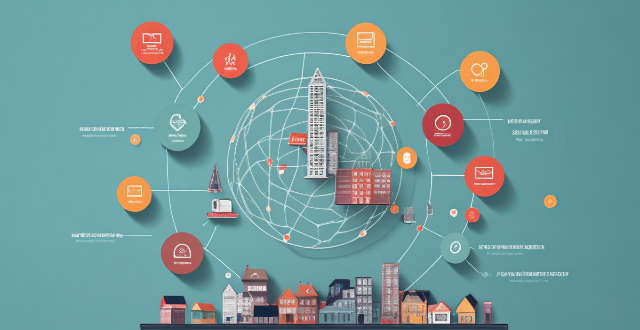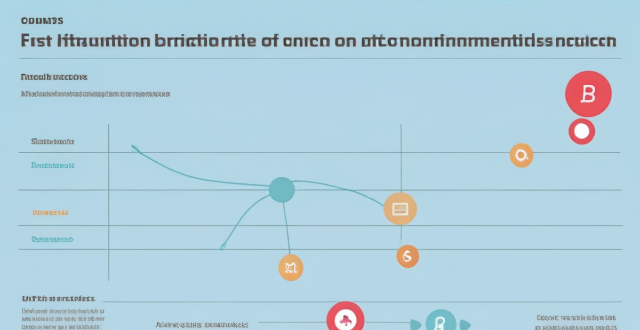Outcome Climate

What role do developing countries play in climate governance ?
The article discusses the crucial role of developing countries in climate governance, highlighting their vulnerability to climate change, growing greenhouse gas emissions, active participation in international negotiations, innovation and technology transfer, financing and investment needs, and capacity building requirements. It emphasizes that developing countries are essential for achieving a successful outcome in the global fight against climate change.

Does a carbon tax lead to "carbon leakage" where companies move to areas without the tax ?
The article discusses the potential for "carbon leakage," where companies might relocate to regions without a carbon tax to avoid additional costs. It highlights economic impacts, geographical considerations, industry-specific impacts, and mitigating factors that could affect the outcome of implementing a carbon tax. The potential negative outcomes include job losses and environmental displacement, while positive outcomes could be innovation and efficiency improvements. The conclusion emphasizes the need for coordinated international efforts and support for affected industries to minimize leakage and promote sustainable practices.

How can we differentiate between legitimate climate science and the opinions of climate skeptics ?
This article provides guidance on how to differentiate between legitimate climate science and the opinions of climate skeptics. It emphasizes the importance of looking for peer-reviewed research, checking the source of information, evaluating the evidence, considering the motives of those making claims, and consulting experts in the field. By following these guidelines, individuals can make informed decisions about climate change and contribute to efforts to address this critical issue.

How can we measure the effectiveness of climate education programs ?
Measuring the effectiveness of climate education programs is crucial for understanding their impact on participants and refining future approaches. Short-term outcomes include increased knowledge, shifted attitudes, and intentions to act, while long-term outcomes encompass behavioral changes, sustained engagement, and influence on others. Methods of evaluation include surveys, interviews, focus groups, and behavioral observations. By using a combination of quantitative and qualitative methods, we can gain a comprehensive understanding of the program's impact and ensure that climate education efforts are continually refined and improved for maximum efficacy.

How accurate are climate model predictions ?
Climate models are mathematical representations used to predict future climate conditions based on greenhouse gas emissions and other factors. The accuracy of these predictions is complex, influenced by uncertainty, variability, validation against past climate change, ensemble forecasting, continuous improvement, and various limitations. Despite their usefulness, it's crucial to recognize their limitations and uncertainties for informed decision-making about climate change.

How can we involve community members in climate adaptation planning ?
Community engagement is crucial for successful climate adaptation planning. To involve community members, identify and engage stakeholders, develop a stakeholder engagement plan, use multiple channels of communication, involve community members in decision making, provide training and education, foster partnerships and collaboration, and monitor and evaluate progress. By doing so, you can create a more resilient community that is better prepared for the impacts of climate change.

How does sports psychology help in managing pre-game anxiety and nervousness ?
Pre-game anxiety and nervousness are common experiences for athletes, but sports psychology offers strategies to manage these emotions effectively. These include goal setting, relaxation techniques, cognitive restructuring, establishing routines, practicing mindfulness, and leveraging social support. By implementing these tools, athletes can enhance their mental resilience and perform at their best when it matters most.

How does climate information sharing help in mitigating climate change ?
Climate information sharing is vital for mitigating climate change by enabling informed decision-making, raising public awareness, supporting research and innovation, promoting international cooperation, facilitating adaptation strategies, and leveraging technology. It empowers governments, businesses, communities, and individuals to take actions that reduce greenhouse gas emissions and adapt to the changing climate.

What is climate financing and why is it important for combating climate change ?
Climate financing is crucial for mitigating climate change by funding initiatives that promote renewable energy, sustainable infrastructure, and adaptation to climate impacts. It enables international cooperation, drives innovation, supports policy development, and encourages private sector participation. Furthermore, it contributes to achieving global goals and enhances public awareness about climate issues.

How can climate financing be used to mitigate and adapt to climate change ?
Climate financing is a key mechanism for both mitigating and adapting to the effects of climate change. It involves funding initiatives such as renewable energy projects, green transport, energy efficiency improvements, and research into cleaner technologies for mitigation. For adaptation, it supports infrastructure resilience, agricultural adjustments, health system strengthening, and community-based strategies. International cooperation through global climate funds and technology transfer further enhances the impact of climate finance. Collaboration among various stakeholders is crucial to effectively utilize climate finance for a sustainable future.

How do climate predictions account for natural climate variability ?
Climate predictions account for natural climate variability by incorporating natural drivers, using past climate records, ensemble modeling, focusing on long-term trends, assessing uncertainties, scenario analysis, and peer review and revision.

What are the implications of ignoring the views of climate skeptics on climate policy ?
Ignoring climate skeptics' views can lead to lack of diversity in thought, potential for misinformation, loss of public trust, opportunity costs, and polarization. Policymakers should consider diverse perspectives and engage with all stakeholders for effective solutions.

How has the COVID-19 pandemic impacted efforts to address the climate emergency ?
The COVID-19 pandemic has had both positive and negative impacts on efforts to address the climate emergency. On one hand, reduced economic activity and transportation have led to a temporary decrease in greenhouse gas emissions. However, the economic downturn caused by the pandemic may make it challenging for governments and individuals to invest in renewable energy and sustainable practices. Additionally, the diversion of resources towards managing the pandemic has led to delays or cancellations of research projects, conferences, and policy discussions related to climate change. Despite these challenges, the pandemic has presented opportunities for innovation and collaboration. The adoption of digital technologies can enable virtual collaboration among researchers, experts, and policymakers across different regions without requiring physical meetings or travel. Moreover, the importance of global cooperation highlighted by the pandemic can be applied to tackling climate change through international collaboration and collective action. In conclusion, while the COVID-19 pandemic has posed challenges for climate change efforts, it is crucial for governments, organizations, and individuals to continue prioritizing these initiatives alongside public health measures to ensure a sustainable future for all.

What is a climate refugee ?
Climate refugees are individuals who must relocate due to environmental changes from climate change, such as sea-level rise and extreme weather events. This displacement affects social structures, economies, and cultures, and there is a need for international cooperation and sustainable practices to address the issue. There is currently no specific legal status for climate refugees under international law.

How do international climate agreements influence national climate policy assessments ?
International climate agreements influence national climate policy assessments by setting global goals and targets, providing guidance on best practices, facilitating technology transfer and cooperation, enhancing transparency and accountability, and offering financial support for climate action. Examples of such agreements include the UNFCCC, Kyoto Protocol, and Paris Agreement.

What is the significance of climate finance in achieving the goals of global climate governance ?
Climate finance is vital for achieving global climate governance goals, supporting mitigation, adaptation, sustainable development, innovation, cooperation, transparency, policy integration, capacity building, and private sector engagement.

How can climate resilience help mitigate the impacts of climate change ?
Climate resilience is a crucial strategy for mitigating the effects of climate change. It involves reducing vulnerability, enhancing adaptive capacity, promoting sustainable development practices, and fostering social cohesion. By implementing these strategies, communities can become more resilient and better able to cope with the impacts of climate change.

What is climate financing ?
Climate financing is essential for implementing projects that mitigate climate change and adapt to its impacts. It includes public sector involvement, private sector participation, support from multilateral and bilateral institutions, and innovative mechanisms like climate taxes and crowdfunding platforms. These financial resources are vital in addressing the global challenge of climate change by enabling access to capital for sustainable initiatives.

How do climate summits contribute to global efforts to combat climate change ?
Climate summits play a crucial role in the global fight against climate change by setting targets and goals, encouraging international cooperation, promoting policy and technological innovation, raising awareness and mobilizing action, and financing climate action.

How can climate financing help developing countries ?
Climate financing is essential for developing countries to adapt to and mitigate climate change. It funds infrastructure projects, capacity building, renewable energy, sustainable land use, and research & development. These efforts help build resilient economies and reduce environmental impact.

How can we use climate predictions to mitigate the effects of climate change ?
Climate predictions are vital in mitigating climate change impacts. They help in adaptation planning, guiding mitigation strategies, informing policy development, raising awareness, and driving research and innovation. By understanding future climate conditions, we can take proactive measures to reduce the effects of climate change on our environment and society.

How can we address the concerns of climate skeptics and promote climate action ?
The text discusses ways to address concerns of climate skeptics and promote climate action. It emphasizes the importance of understanding their concerns, providing accurate information, building trust in science, addressing perceived costs, and overcoming political beliefs. The author suggests using educational websites, scientific studies, news articles, economic analysis, job creation, efficiency measures, common ground, local impacts, and dialogue to counter misinformation and skepticism about climate change.

What are the risks associated with climate financing ?
Climate financing is vital for mitigating climate change but comes with economic, policy, environmental, social, reputational, and technical risks that must be managed through strong governance and legal frameworks to ensure effectiveness and credibility.

How does the Paris Climate Agreement address climate justice ?
The Paris Climate Agreement, adopted in 2015, emphasizes climate justice and the need for all countries to take action to limit global warming. It recognizes the unequal impacts of climate change on vulnerable communities and developing countries, and provides mechanisms for financial support, capacity building, and loss and damage compensation. The agreement aims to create a more equitable and just response to the global challenge of climate change.

What is a climate summit ?
A climate summit is a meeting where international participants discuss and negotiate solutions to address climate change challenges. They focus on reducing emissions, adapting to impacts, and promoting sustainable policies through agreements informed by scientific evidence. Notable summits include the Earth Summit and COP conferences.

How can climate services support policy making for climate change ?
Climate services support policy making for climate change by providing scientific evidence, assessing impacts and risks, informing mitigation strategies, enhancing capacity building, and facilitating international cooperation. They provide decision-makers with relevant, timely, and reliable information on the state of the climate system, its variability, and its future projections. This information is essential for developing effective policies to mitigate and adapt to the impacts of climate change.

What is the definition of a climate refugee ?
Climate refugees are individuals or groups forced to leave their homes due to the adverse effects of climate change. They face challenges related to basic needs, legal status, employment, social integration, and mental health. Examples include Tuvaluans, Bangladeshis, Sahelians, and Caribbean Islanders.

What is the significance of the Green Climate Fund in supporting climate initiatives globally ?
The Green Climate Fund (GCF) supports climate initiatives globally by providing financial and technical resources for mitigation and adaptation projects. It encourages private sector participation, strengthens institutions, and promotes gender equality and social inclusion in climate actions.

How does climate change contribute to the climate emergency ?
The role of climate change in the current climate emergency is significant, driving various environmental issues that pose threats to our planet's health and stability. Key aspects include rising temperatures leading to heatwaves and melting ice, greenhouse gas emissions causing a greenhouse effect, extreme weather events such as intensified storms and altered precipitation patterns, wildfires and land degradation, ecosystem disruptions like biodiversity loss and ocean acidification. These impacts are far-reaching and deeply concerning, requiring urgent action to reduce greenhouse gas emissions and implement sustainable practices.

How can climate risk management help reduce the impact of climate change on the environment ?
Climate risk management is a multi-step approach that helps mitigate the effects of climate change on the environment. It involves identifying and assessing risks, prioritizing them, developing adaptation strategies, implementing mitigation efforts, fostering collaboration, and continuously monitoring outcomes. This proactive method aims to protect natural systems from adverse climate impacts, promote sustainable practices, and reduce greenhouse gas emissions. By adopting these measures, we can build resilience against climate-related risks and contribute to a more sustainable future for all.